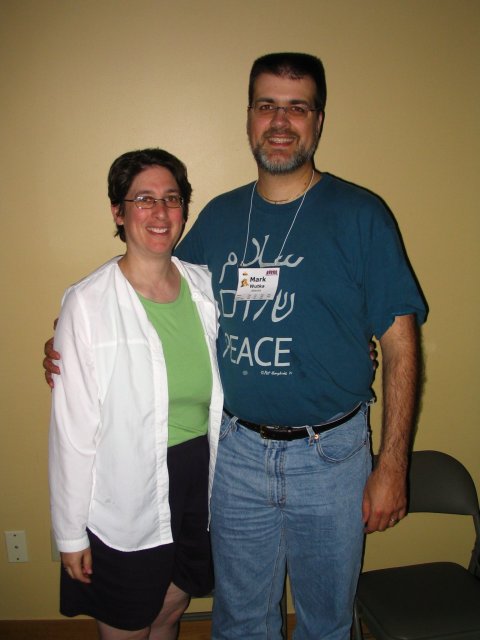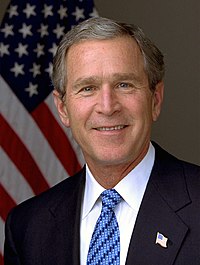I feel like I went off on a tangent before with respect to some similarities between my experience among Conservative Friends and what I read about the Convergent Friends. I would like to just share some more of my experiences, without getting into schisms and such. I have felt a little uneasy that I have been allowing myself to be pulled away from something precious into something that distracts me.
The opening worship was rather quiet, but there was a depth and a seriousness to the messages. After dinner was the meeting for the committee on Ministry and Oversight, to which everyone was invited. Ceal and I were seated next to Louise Wilson, who is a recorded minister from Virginia Beach Friends Meeting. It was a delight getting to know her. Sometimes she is very deep, other times just funny and makes effective use of a mischievous smile. We were talking about simplicity and how hard it can be to give some things up. She said that looking back over her life, she has been amazed at how things just seem to fall away. It reminded me of the possibly apocryphal story about William Penn being told to wear his sword "as long as thee can". To me, that isn't saying that it is okay NOT to simplify, but that as I come into a closer relationship with God, those extraneous things will fall away on their own.
I ended up volunteering to be a reader for the 7th Night program, which was the Gospel of Mark in 9 Voices. There were 2 narrators who read everything that wasn't a direct quote, one person reading all of Jesus' lines, and then everything else went to the other 6 people. I was one of the other 6, and we were scattered throughout the audience on 7th day. When we were first deciding where everyone would be seated, it was suggested that the person reading God be placed on the top row. For some reason there are times when I can't help making a joke, and I said that while I liked that idea, I might also suggest the middle of the front row, because if God can't get tickets for front row, center, who can? Lloyd Lee laughed and said "Thee has a future as a theologian". There's a scary thought! I thought everyone did a great job, especially Tommy Gipson, who read Jesus. Now, I'm sure it was just a coincidence, but I couldn't help noticing that they had the visitor from the Liberal Friends (i.e. me) read every one of the unclean spirits. I AM LEGION!!!
When we were at SAYMA, we saw our f/Friend Deborah Fisch and we joked that we were coming to the NCYM-C gathering to heckle her - she was the keynote speaker. Deborah laughed, and then said "Well, maybe you could be on my support committee". That was a new one for me, and we were quite happy to have been asked. For me, being on the committee was like doing a meeting for healing, and it turned out I really needed to do this - not necessarily for Deborah, but for me. We met about 30 minutes before Deborah's talk and held her in the light, prayed, offered some vocal ministry and song. Then we held her in the light through her talk. That opened something in me, as it does sometimes in meeting for healing and it affected me for the rest of my time there - it is difficult to describe, but I do get a sense of being "in the Spirit" at various times and at various intensities, and I felt that way much more frequently afterwards. If you ever get a chance to hear Deborah Fisch speak, go! She had so much to share and I think everyone there was deeply and personally touched by her words. One thing she said that I heard repeated a lot afterwards is that there is nothing you can do to make God love you any more than you are right now, and there is nothing you can do to make God love you any less than you are right now. Deborah also spoke quite a bit about 1 Corinthians 12, which I
blogged about just two weeks ago. Of course, Deborah is much more insightful than I am.
The closing worship was just incredible. Deep, moving messages. I was even given a brief message, which is quite rare (the message part is rare, they have all been brief). It was an interesting experience in that the message had been trying to get my attention, like it was tapping on my head or something (dink, dink). But I figured it was just a random thought. So finally, I said "God, if this is really a message, let me know." I don't really remember how it became so clear, but a minute later I was on my feet. Sometimes I wonder whether God doesn't need me to speak much, or if I am just not a good listener. But then, there are other ways to minister to people than just speaking in meeting. Maybe that's what I am meant to do.
The day after I got home, I typed in a 2-page document that was from an earlier meeting of Ministry and Oversight discussing what is the core of being a Conservative Friend. I sent it to the Gwinnett Friends Preparative Meeting where I have been worshipping a good bit lately. As I was typing it in, I got to the list names of those present at the meeting, most of whom I had just met. Each familiar name brought a little bubble of joy, and I long to see these people again and worship with them.
Update (8/1/2006):
The summary of what it means to be a Conservative Friend, answering the query:
The “fabric” of Conservative Friends is made of many threads. Name the threads that make up the “religious” part of the Religious Society of Friends. Which of these thread(s) seem essential to our identity as Conservative friends? Which thread(s) are essential to the manner in which we practice our faith? is
now available online!




